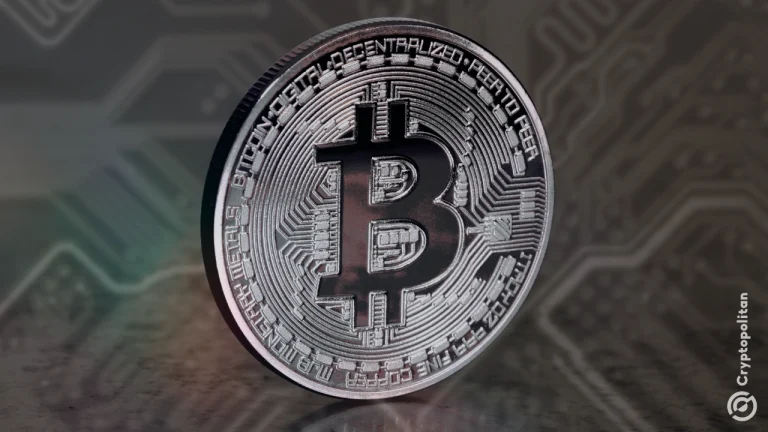At a Glance
- A new Bitcoin Improvement Proposal (BIP), BIP-444, has been introduced by Bitcoin Core developer Luke Dashjr, proposing a soft fork to limit arbitrary data in blocks.
- The proposal aims to streamline Bitcoin’s function primarily for financial settlement and address concerns about block bloat and potential illegal content.
- Initial reactions to BIP-444 have been mixed, with some developers and mining pools expressing strong opposition to the proposed soft fork.
- Critics argue that BIP-444 represents a step towards censorship and deviates from Bitcoin’s neutral technology principles.
- The debate highlights ongoing disagreements on how to manage network spam and the future utility of the Bitcoin network.
BIP-444: A Proposal to Refocus Bitcoin
A new proposal, known as BIP-444, has emerged within the Bitcoin community, sparking renewed debate about the network’s core purpose. Spearheaded by Bitcoin Core developer Luke Dashjr, this initiative suggests a soft fork designed to optimize Bitcoin for financial settlement and reduce the inclusion of arbitrary data within blocks.
The discussion around BIP-444 follows months of social media conversations questioning whether the Bitcoin network should prioritize its role as a value settlement layer or accommodate additional data, such as that used for non-fungible tokens (NFTs) like Ordinals.
BIP-444 is presented as a direct response to the increasing data load on Bitcoin blocks, which has also raised concerns about the potential for illegal content to be embedded. As of October 28, the Bitcoin ecosystem is contemplating different approaches, ranging from incremental filtering and minor upgrades to a more comprehensive network overhaul proposed by Bitcoin Core developers.
Luke Dashjr has indicated that BIP-444 is progressing towards broader acceptance, though its ultimate passage remains uncertain. A soft fork, if implemented, would alter rules for Bitcoin miners without creating a new blockchain or cryptocurrency.
We can do these all together in a temporary softfork that self-expires after a year or two, Dashjr explained in developer discussions. This would buy time to come up with longer-term solutions, and observe how it impacts the real world.
Currently, there is no unified agreement on whether Bitcoin should facilitate diverse content or remain strictly a payment network, free from extraneous block art or limited messaging. This divergence is at the heart of the current debate.
Bitcoin’s BIP-444 Faces Opposition
Despite its developer backing, BIP-444 has encountered significant resistance from key figures within the Bitcoin mining community. Chun Wang, the founder of F2Pool, one of the largest Bitcoin mining pools, has publicly declared BIP-444 a bad idea and stated his refusal to support any soft fork versions of it.
BIP-444 is a bad idea. Not going to soft fork anything. Temporary or not.
Feel sad that some devs moving further and further in the wrong direction.
— Chun (@satofishi) October 27, 2025
F2Pool’s stance carries considerable weight, representing over 10% of the Bitcoin network’s mining capacity. The pool’s opposition suggests a leaning towards allowing content on the network in some form, rather than a complete freeze as proposed by BIP-444.
The approach taken by BIP-444 aligns with the tendencies of Bitcoin Core developers, who often favor more conservative and minimalist upgrades. As Bitcoin’s significance grows in mainstream finance, their focus is shifting towards simplicity and stability rather than frequent, potentially risky, filtering upgrades or automated updates that could impact network performance.
In a symbolic act of defiance, the text of the BIP-444 proposal was inscribed onto the Bitcoin blockchain, ensuring its permanent record independent of the protocol’s official development path.
The Future of Bitcoin’s Utility and Value
A central question is whether BIP-444 will gain enough support from mining pools to be adopted as the standard for network nodes. If successful, it could lead to a significant reduction in spam content flowing through the Bitcoin network.
This proposal has ignited a broader discussion about Bitcoin’s nature: is it a neutral technology, or one susceptible to censorship? The idea of removing illegal content is perceived by some as a potential gateway to broader censorship on the network.
Although Bitcoin remains a highly valued asset, a consensus on managing network spam has yet to be reached. Opposing factions continue to debate whether spam should be addressed at the protocol level or through external mempool tools. The proposal is currently under active discussion on GitHub, facing numerous critiques and challenges.

